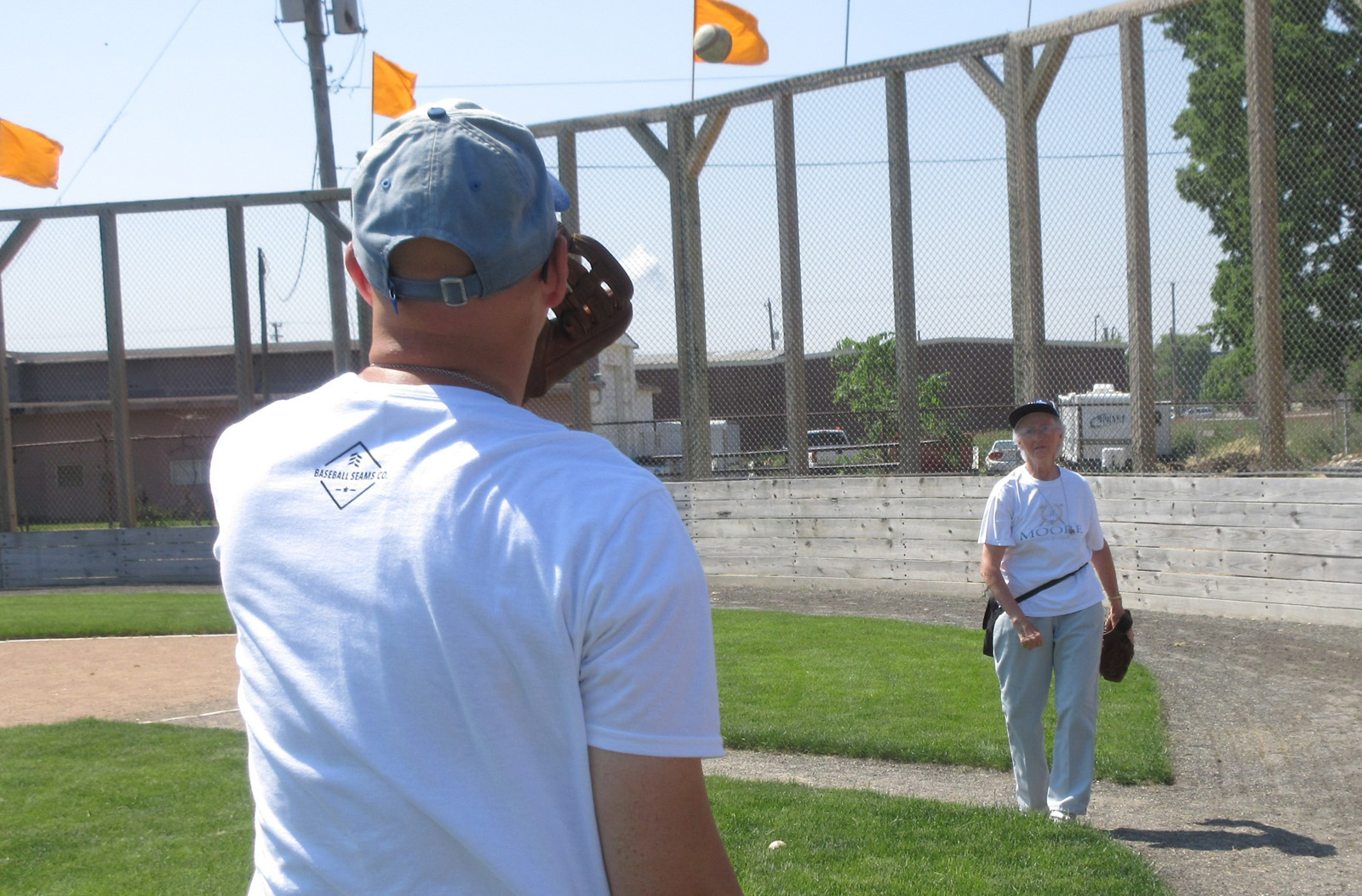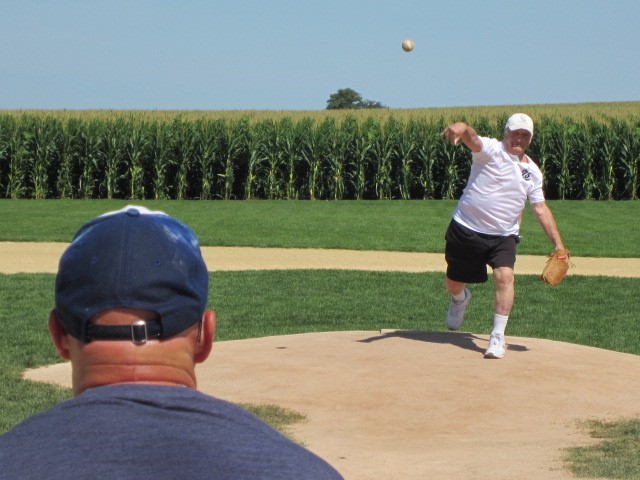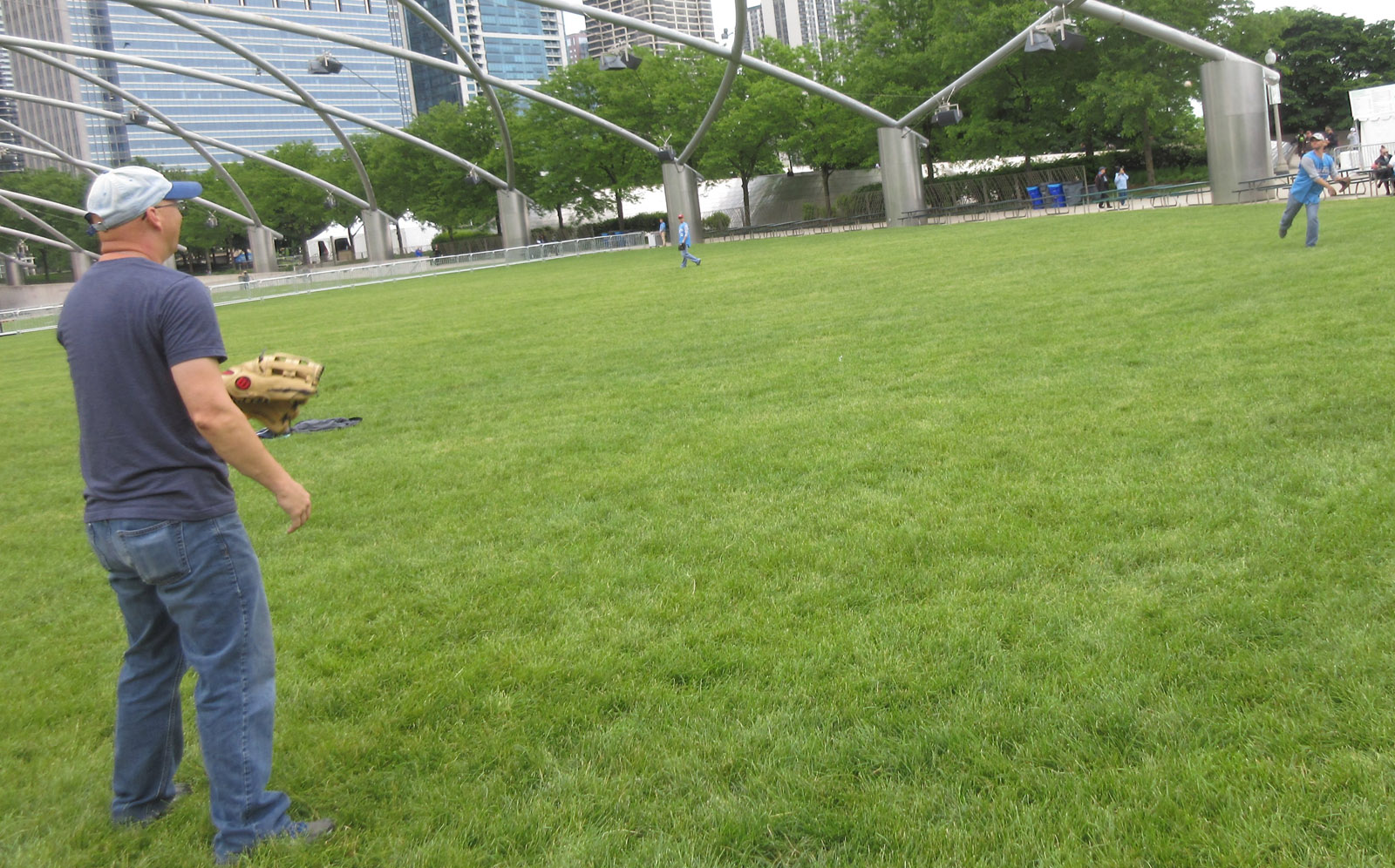I believe in the power of playing catch.
In 2018, I played catch every single day for an entire year. My friend Aaron called the effort Catch 365, and it was a life-changing year. My catch-playing year has continued to teach me about what it means to live a good story.
We live in a culture that is play-deprived, depressed, lonely, distrustful, and always distracted.
“More than 75 percent of children under 12 are not getting enough free, active, playtime,” research suggests. The older we get, the less we tend to play.
Dr. Stuart Brown is the founder of the National Institute for Play. He says, “The prevalence of stress-related diseases, interpersonal violence, addictions, and other health and well-being problems can be linked, like a deficiency disease, to the prolonged deprivation of play.”
Developmental psychologist Brian Sutton-Smith bluntly states, “The opposite of play is not work, it is depression.”
Depression reaching ‘epidemic levels'
Nearly 10 percent of Americans suffer from depression, with the mood disorder increasing fastest among teens and young adults, and it’s reaching “epidemic levels.”
As Austin Rode wrote for Peer Mental Health, a peer-run mental health tech organization: “When we’re depressed, we feel pessimistic about our own capabilities, and we lack the physical energy to engage in basic tasks, let alone difficult challenges. Depression means disconnection; when we are depressed, we isolate and find it difficult to relate to others. This leads to an inability to collaborate or engage in effective ways with others.”

More than one-third of all Americans feel “serious loneliness.” Katherine Peters, a neurology professor at Duke University, says, “Loneliness can change the neurochemistry of the brain, turning off the dopamine neurons, which trigger the reward response, and causing some degeneration in the brain when the reward response is not activated.”
Loneliness negatively affects hormonal, immunological, cardiovascular, and inflammatory responses, literally destroying the body, and is as bad for your health as smoking 15 cigarettes a day.
Steve Cole, a professor of medicine at UCLA, concludes: “The biology of loneliness can accelerate the buildup of plaque in arteries, help cancer cells grow and spread, and promote inflammation in the brain leading to Alzheimer’s disease.”
Loneliness leads to lack of trust
Because we are lonely, we have forgotten how to trust. In America, interpersonal trust is in catastrophic decline. More than 70 percent of adults under 30 believe people are only looking out for themselves, that most people “would try to take advantage of you if they got a chance.”
“Distrust produces a feeling of being disconnected from society, a feeling that the whole game is illegitimate, that you are invisible and not valued, a feeling that the only person you can really trust is yourself.”

There is good news. “Trust can be rebuilt…by the outrageous gesture of extending vulnerability in a world that is mean.”
Building trust, extending vulnerability, requires that we pay full attention to one another.
But…almost everything about our current culture teaches us how not to pay attention.
According to psychologist Curt Thompson, “In the age of the internet we are learning — in fact we are practicing — how not to pay attention. We are being trained to be unable to maintain attunement to a whole host of things whose flourishing depends on our paying attention for extended periods of time. And when we can’t, we become anxious, bored, and irritated…we are now distressed anytime we have to spend fifteen to thirty seconds without a stimulus from outside our own mind. …Effort is often required on our part to allow the beauty to work its way into our souls, moving as it must to persuade us to open the gates of our left hemisphere’s bulwark of defenses.”
Playing catch is a noble and beautiful effort
With all of my heart, I believe a simple game of catch can be a meaningful starting point, a noble and beautiful effort, for addressing all of these cultural ills.
Playing catch, first and foremost, is a form of play. As Dr. Stuart Brown stresses, “We are built to play and built through play.”
Playing catch creates a sacred opportunity for us to hear and learn one another’s stories. The effort of throwing and tracking an object through time and space, which requires the coordination of the entire brain, persuades us to “open up the gates of the left hemisphere’s bulwark of defenses” and “extend vulnerability.”
We play catch and feel our catch partners’ joy and pain, their wonder and their worries.
When we play catch, we give the stories a chance to dance across our synapses and the endorphins work hope into our brains.
And because we are playing catch, we will be with someone else. Playing catch, just like all of life, is an adventure that is supposed to be shared and it’s better because of it.

When we play catch, we are developing trust through giving our partner our full attention. Catch partners put their physical skills on display in front of one another, a small act of vulnerability, trusting that the other person isn’t intending to embarrass or hurt them. We are there to share joy.
Once muscles are stretched out and a conversational rhythm has been established, playing catch does exactly what play is supposed to do: encourages curiosity, creativity, and strengthens relational connections.
‘Change someone's life with one game of catch'
The act of throwing and catching develops into a rhythm, a form of mindful meditation, immersing ourselves in this moment where yesterday’s regrets and tomorrow’s fears are set aside so that we might fully experience this moment. Digital distractions are gladly set aside.
And then something really interesting happens — we lose track of time. We are only there, in that moment, simply playing with our partner.
Legendary pitching coach Tom House once commented, “You can change someone’s life with one game of catch.”
I couldn’t have said it better myself.
So, Springfield friends, if you’re interested in playing catch or want to learn more about the life-changing power of playing catch, send me a note at Wannaplaycatch@gmail.com
My glove is oiled and ready.


